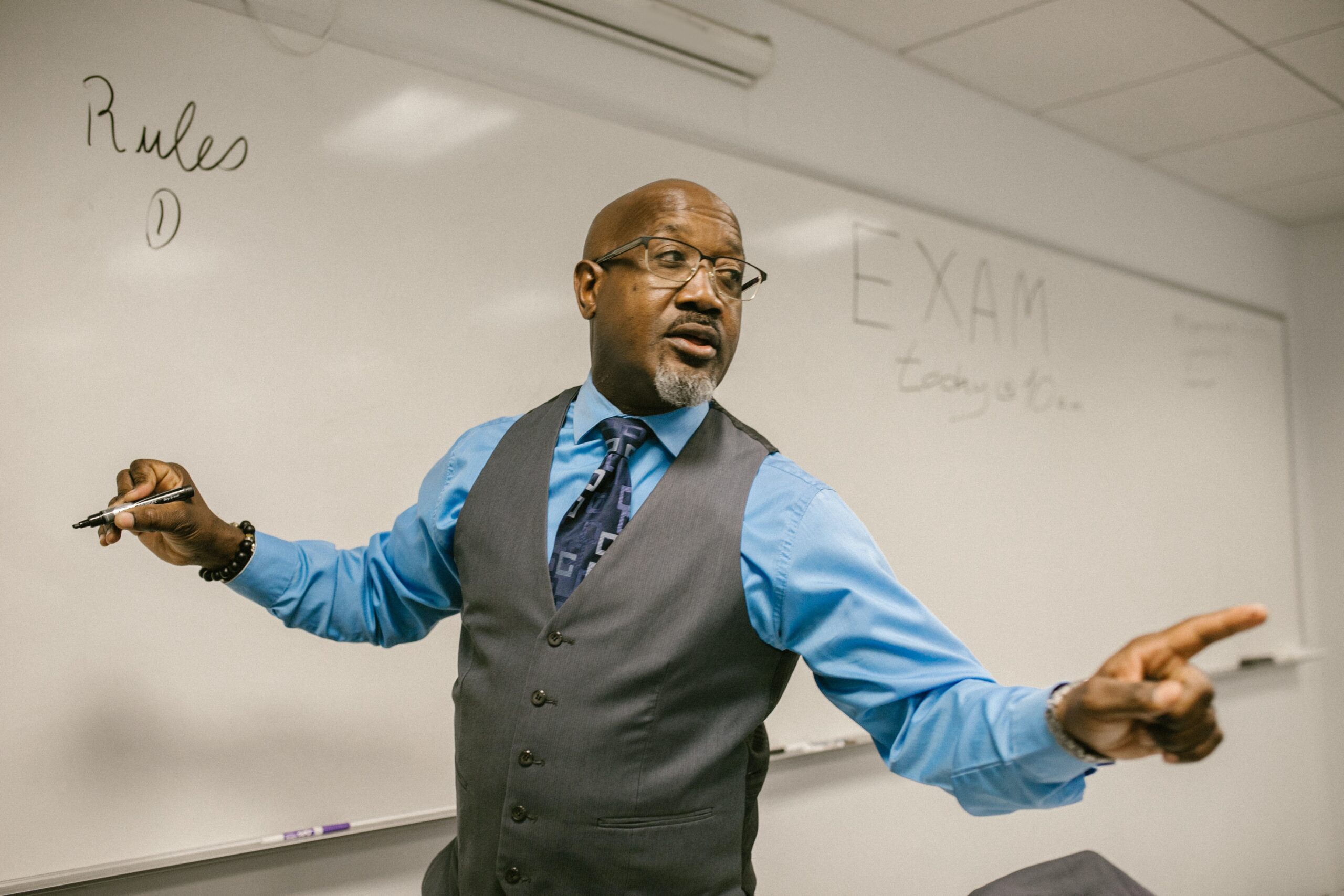
By
Across the country, teachers are putting together lesson plans for Black History Month, celebrating the monumental significance and contributions of Black people throughout history. A lesson I hope we all reflect on this year: why Black teachers matter.
I grew up in a household where celebrating and uplifting the Black experience happened all year, not just in February.
I saw it on Sundays while soaking up the fervent words of a fiery Black preacher in a southern Black church. I saw it in Jack and Jill, where Black families are the center of social and cultural programs year-round. I saw it through my parents’ community involvement in their Divine Nine sorority and fraternity. And I sought it myself, heading to the historically Black Spelman College after spending my public school education in classrooms with fewer Black teachers than I can count on one hand.
My proximity to phenomenal Black teachers illuminated for me why Black teachers are paramount to students’ lives, but this isn’t just my story. The data show the impact that Black teachers can have.
Having both parents as educators (my mother being a special education teacher, and my dad as a Junior ROTC Senior Army Instructor), I didn’t just witness the importance of Blackness in education — I lived it.
That’s my hope for all students today: to enter school buildings where Black teachers are not only present and thriving, but where their experiences and voices are elevated in such a way that it positively shifts the school environment.
My proximity to phenomenal Black teachers (even in my own home) illuminated for me why Black teachers are paramount to students’ lives, but this isn’t just my story. The data show the impact that Black teachers can have.
Black Teachers Matter Because Representation Matters
Multiple studies show the powerful academic outcomes when Black boys have at least one Black teacher and the positive effect on graduation rates. Black male educators report spending more time outside of class with students than teachers of any other demographic, and have more students socializing in their classrooms.
Whether it’s because students gravitate to teachers in whom they can see themselves, or because of a special commitment to supporting the whole student, or another reason entirely, Black male teachers demonstrate the highest levels of engagement with their students, and thankfully, this higher level of engagement does not correlate with burnout, and does not appear to drive it.
But we don’t have enough Black teachers — or teachers of color, for that matter — in the classroom. There’s power in seeing yourself in the role model that stands before you, and the environment that’s created for Black students (and all students of color) when their classroom’s leader looks just like them. As one scholar put it, “Black teachers matter because they can disrupt harmful rhetoric and exclusionary practices.”
Black Teachers Matter Because They Play a Critical Role in Creating Anti-Racist Communities
At DonorsChoose, a nonprofit crowdfunding platform exclusively for public school teachers, our data show that teachers of color disproportionately request classroom resources that speak directly to racial justice and representation.
That might look like classroom copies of “The Hate U Give” or journals for students to reflect on moments of national reckoning: resources that expose students to intentional conversations that disrupt and combat racism.
It’s no surprise then that, when we surveyed more than 5,000 teachers in the largest-ever study centering male teachers of color, we found that Black male teachers are most likely to have entered the profession because they wanted to teach a curriculum that affirms the identities of students of color.
Educators who began teaching after 2010 were the most likely to report choosing the profession because they see teaching as an act of social justice, with male teachers of color more likely to report this than white male educators.
Black teachers bring a unique experience and lens that can disrupt white supremacist norms in the classroom, school climate, and communities at large.
Black teachers bring a unique experience and lens that can disrupt white supremacist norms in the classroom, school climate, and communities at large.
Showing up for Black teachers can start, but never ends, with Black History Month. In 2023, empowering Black educators means we let this month be not a moment but the catalyst to a sustained movement of support.
We continue to build the largest-ever community of teachers of color on DonorsChoose, with more than 170,000 teachers of color, 38% of whom are Black.
Every supported classroom request means we learn something new about what’s happening in public school classrooms through the eyes of these educators, and provides an opportunity to uplift these educators in a way that’s culturally responsive and relevant to what’s happening right now in K-12 education.
This Black History Month, we continue our tradition of intentionally seeking and funding the classroom aspirations of Black teachers and teachers in schools where the majority of students are Black. However you choose to honor Black History Month, don’t forget to thank a Black teacher, and show them how and why they matter.
_____
Related Posts:
Black Teachers Are Fed Up — and They’re Quitting in Droves



